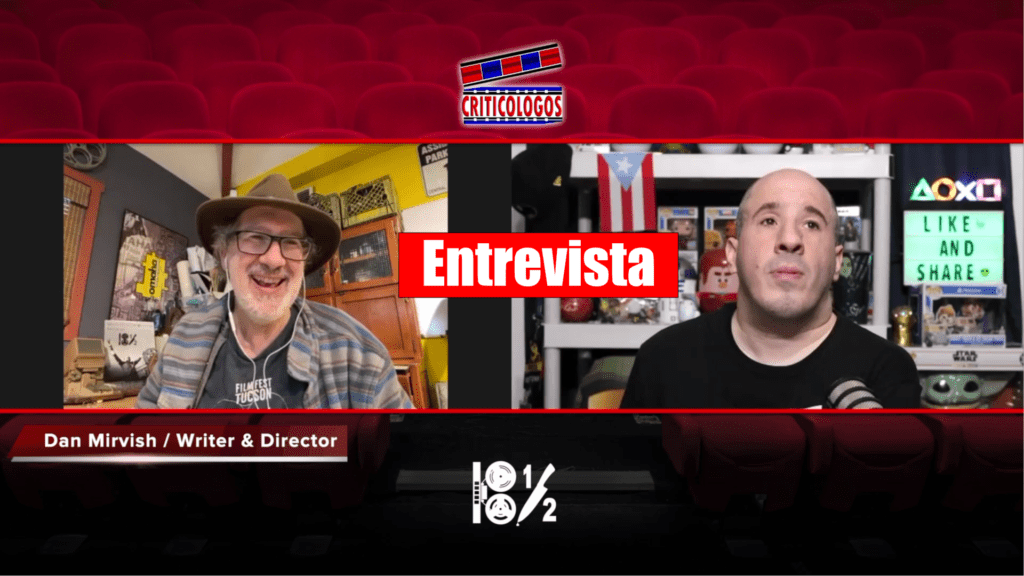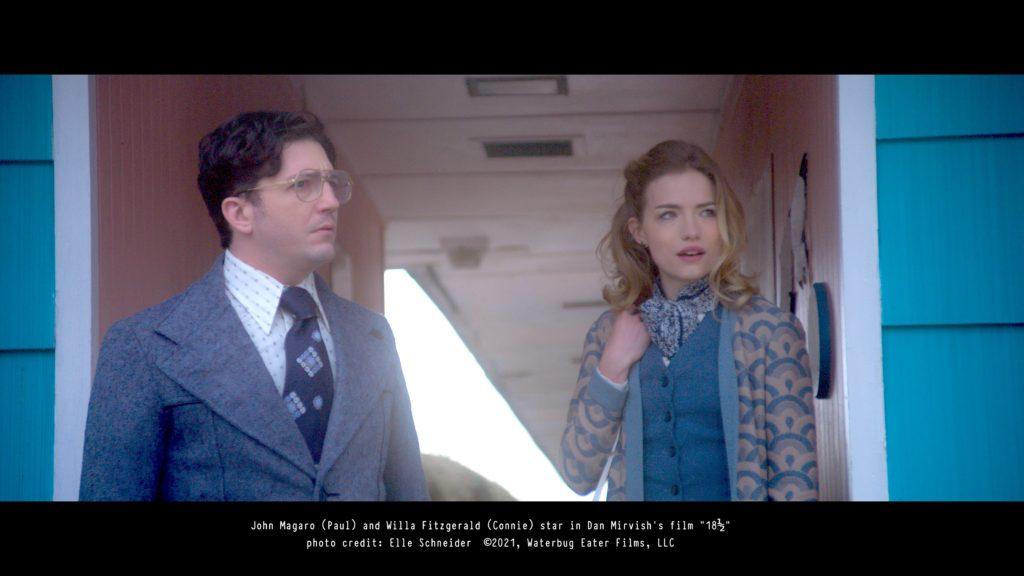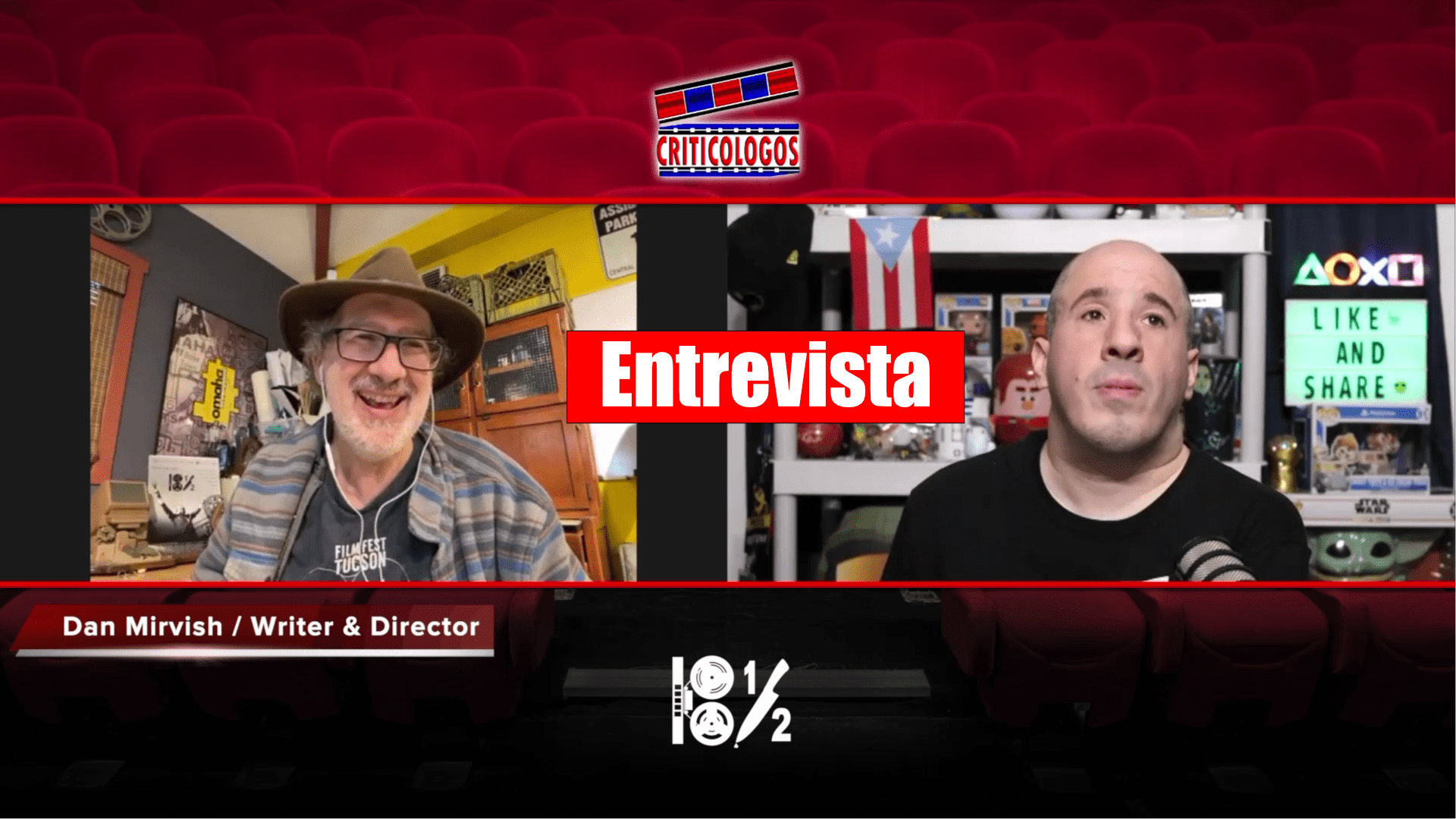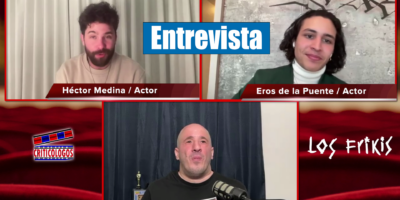
Interview by Rafy Mediavilla, w/ “18½” writer-director Dan Mirvish on his Watergate comedy/thriller movie. Out May 27! #18andahalfMovie
To this day, no one knows who erased the 18½-minute gap in the Nixon Watergate tapes or why they were erased. Once the gap was discovered Nixon’s presidency quickly unwound.
The film 181⁄2 is historical fiction. None of the main characters seen in the movie ever existed. That said, the 181⁄2-minute tape heard in the film are based on contemporaneous Nixon tapes and the historical record since that time. Sometimes truth is indeed stranger than fiction.
Criticólogos:
What motivated you to talk about this event in this way?
Dan Mirvish:
Well, I’ve been thinking about Watergate for a long time and have written about it a little bit in other media. But and I’d worked in Washington. I was the Senate speechwriter for a couple of years before I went to film school. And I kind of really love and appreciate that culture of the Washington and leaking and the press and working in government. And I’ve known a couple of people kind of tangentially involved with Watergate over the years, but it really kind of precipitated because the last film I did, which was called Bernadine Huey, the last day of Shooting, that was the day of the presidential election in 2016, where Trump got elected.
And that day I was showing dailies to my writer on that film was a guy named Jules Feiffer who has a was a Pulitzer Prize winning cartoonist for The Village Voice, largely for his cartoons about Nixon and Watergate. The conversation inevitably went to, you know, well, we survived Watergate. What could possibly go wrong in the next four years? And then that night, I because in Feiffer lived in Shelter Island, which is the tip of Long Island out near the Hamptons.
And I took the ferry that night over to my friend Terry owns this motel called the Silver Sands Motel in which is actually in Greenport, New York. And his grandparents had built this place in the fifties and sixties, and Terry had been running it for a couple of years and used it as a great location for fashion shoots, a lot of high end Vogue and Harper’s fashion shoots out there. But he said no one’s ever shot a feature and we’re closed in the winter. And if you want to, you know, if you come up with something, you know, we can all stay out here and shoot it.
And he was with me talking to Fifer. We kind of had Watergate on the brain. It’s like, okay, well, how can we do a Watergate film? Which, you know, the Watergate story takes place in D.C. in in a seaside resort. So that took a few months to figure out. And then I got together with my screenwriting friend Daniel Moyer, and we and we and once we did start doing the research and realized that there were these multiple taping stations in in the White House complex, different rooms had this voice activated taping system that Nixon had put in.
And there really are tapes of Nixon listening to other tapes and fumbling around with the buttons. And once I realized that those really do exist, then it became sort of plausible that we could have the story that we have where with a, you know, where Connie Willis Fitzgerald’s character is, is a White House transcriber who gets a hold of a tape of the tape of the missing happen a gap and then would naturally, naturally in our plot would meet a reporter at a seaside motel. We changed it to Maryland. It would be a little closer to D.C. and they of course, they run afoul of hippies, swingers and nefarious forces out to get them.
Criticólogos:
With a small budget, and an amazing cast. How in the hell were you able to put all of this together?
Dan Mirvish:
Well and to do it in the middle of a global pandemic, too? … Well, you know, then we just got a lot of it is luck and a community. I mean, this whole thing started with crowdfunding. You know, as most indie films do these days. But I’ve been doing I’ve been, you know, just like my sixth film. I’ve been doing a lot of indie films over the years, and I’ve had a great cast. I work with Richard Kind. He was in my last film. So, you know, I knew we could probably get him if he’s available. He’s always very busy and he was, so we were lucky.
Bruce Campbell Someone that I tried to work with on the last film, but the schedule didn’t work, so he was a little familiar with me, so it wasn’t crazy to to reach out to him again. And honestly, it was it was it was an easy commitment to get someone like Bruce Campbell or Jon Cryer, Ted Raimi to do the eight and a half and to get Bruce plays Richard Nixon, the voice of Nixon, because for them, as busy working actors, it was a fairly easy commitment. Oh, a couple hours. Voice over In two years, yeah, sure, I’ll do that, you know.
And then little did they know that, you know, I would call them in, in June of 2020 and say, by the way, we shot 11 days. The film had to take a pause for the pandemic. You guys are all sitting at home alone. We’re now going to do this over Zoom. And that actually made it even easier for them because it was at a time when no actors were working, no directors were working. But, you know, because it was essentially like a little radio play within the film, we could do it over Zoom and do it well.
And it was a lot of fun for all of them. And then some of the other actors just came on board, like with 36 hours notice. Vonnie Curtis Hall, like nuns, amazing Emmy winning actor. He was like, Yeah, I live in New York. I’ll come out there, see you in two days, you know, and you know. And then there were people like Willa Fitzgerald wasn’t particularly famous when we first met with her. And then after doing the film, she did the series Reacher and, you know, kind of shot up her Hollywood start.
Kind of shot up. But and then and then. But she had been recommended by a director friend of mine, Lucky McKee. John Magaro was recommended by Kelly Reichardt from doing First Cow. So part of it is, is that I know a lot of other directors who then, you know, they’re always very generous with you, with each other. All of us are when recommending actors.
Criticólogos:
I’m glad you mentioned Bruce Campbell doing the voice over, What was his reaction?
Dan Mirvish:
Well, for him, it was it was a it was a fun change from doing the genre films, Evil Dead kind of things. And he had actually just done he had just played Reagan, Ronald Reagan on an episode of Fargo and had gotten a lot of critical attention for that. And I knew about that. And so this was kind of a nice, you know, hey, let’s do another crazy president, you know, and but he it turned out and I didn’t know this until we started talking, that he was a he had been obsessed with Watergate when he was a kid because, you know, the TV was just preempted with all the Senate Watergate hearings.
And Bruce is a couple of years older than me had really, you know, been obsessed with Watergate as a kid. And it turned out that he and Ted Raimi had actually done some comedy bids for an album with Nixon and Haldeman with actually Ted playing Nixon and Bruce playing the assistant, you know. And they said both of them were really familiar with Watergate and Nixon and were excited to do it.

Criticólogos:
What about Willa Fitzgerald?
Dan Mirvish:
She really liked it, not just for the, you know, the Watergate side of it, which is really just kind of a side thing. It’s really a her story. It’s a it was a story of this character from the early seventies. And I think what she really saw in it and we talked about a lot was kind of where were women in the workplace in 1974, kind of with that round of feminism and especially working in Washington as a civil servant, you could only say you could only go just kind of course you could you could only go so far in in in Washington before you hit the glass ceiling, not only as a woman, but just as a as a civil servant, because then it’s all political appointees above that.
And so kind of exploring the culture of that. But also we played around a lot with the specifics of 1974, how it was the tail end of the Vietnam War and what were the ramifications for for all kinds of people at that age or at that time? But it was but it was seventies, but it was pre disco. It was the end of the hippie era that had kind of faded by then. We kind of but there were still the the World War two generation were only middle class at that were middle age at that point. So what were they doing and how did they interact with the with the youth culture of that time? So it was a lot of those cultural things that that will it really saw in the film and took to heart and did an amazing job bringing out in her performance.
Criticólogos:
How did that last act come about?
Dan Mirvish:
It was always scripted. It was. And it was actually one of the first ideas that we had was thinking about, number one, what is the least romantic tape that a couple could be making love to while it’s playing? And it was the Nixon tape with that, again, without giving too much away. And then also then the flip side of that is what is the you know, what is the most physical, you know, conflagration you could have? Again, while this tape that is that is the tape that they’ve all been talking about that that they’ve imparted so much import into.
And the fate of the world relies on this tape. And yet by the end of it, all this other stuff is going on and it’s the audience is listening to the tape, but not the characters. It’s kind of the opposite of the MacGuffin that Hitchcock used to talk about. So yes, it was always in the script and part of it was also playing with the idea that as long as the tape is playing, we’re kind of in a continuous shot. And that was something that we came close to, close to pulling out of not quite but close.
And that was, you know, and that just adds to the tension, you know, hopefully it does. But, you know, all the actors were great. I mean, they’ve all done a lot of physical, you know, fight scenes and action scenes and dancing scenes, you know, as well. And that was the thing is we also kind of want to reflect the we shot it in a similar style to the dancing scene earlier. So there’s some parallels there. But again, I hope we’re not giving too much away. But they and we had a great stunt coordinator, too, my friend Chris Dukes.
So, you know, we did it safely. But that was literally all that stuff happened on the night that we shut down for COVID. So we and not everyone on the crew or cast knew that we were we didn’t even know at that when we started shooting that day ended that day. But yeah, we that was our 11th day and we just found out that we were the last feature film shooting in North America. There they I think they said there was one other shooting in Puerto Rico, actually. But we realized, yeah, we everyone else must know something that we don’t know. So we shut down for six months and then came back and did and did another four days in September of 2020.
Criticólogos:
Why should they go see the movie?
Dan Mirvish:
You know, it’s fun. it’s a thriller. It’s a comedy. But also, I think the interesting thing is that by doing a period movie about Watergate, it’s a way for people to reflect on whatever is happening now or in recent history. You know, when we’ve shown it at festivals around the world and in Brazil, people are like, Oh, this is really about Bolsonaro. Or in England they’re like, Oh, this is just like a Boris Johnson scandal now, actually.
Yeah. And you know, look, I mean, it’s easy enough to read Trump into it, but if you want, you could read Biden into it. You know, as long as you’re watching the movie, that’s all we care about. So but I think that’s a nice thing about doing a period film is it allows it hopefully is relevant and will resonate with, you know, with audiences wherever they are and, you know, and then we have a great soundtrack which also just went on sale, too.
See the interview below:




